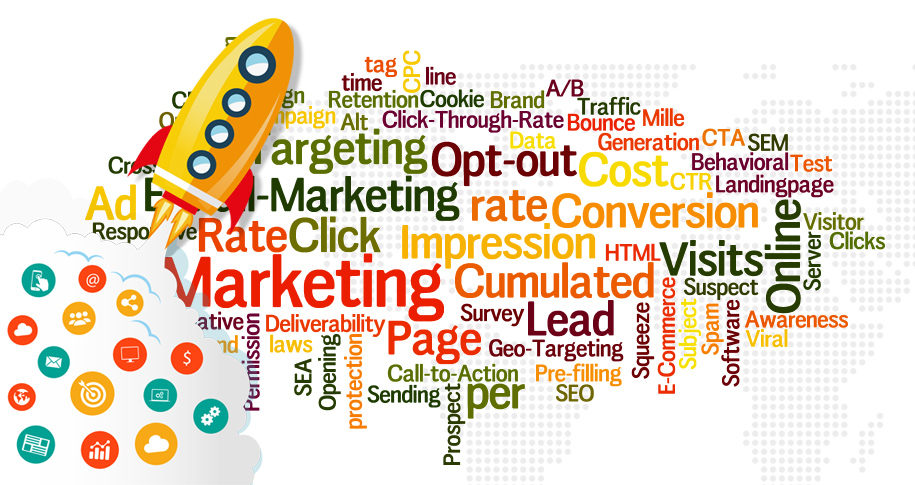Definition
Content marketingDefinition
Content marketing is a str... More is a strategic approach focused on creating, publishing, and distributing valuable, relevant, and consistent content to attract and retain a clearly defined audience. Its ultimate goal is to drive profitable customer action by providing content that educates, entertains, or solves problems. Unlike traditional advertisingDefinition
Brand awareness is the ext... More, content marketingDefinition
Content marketing is a str... More builds trust and loyalty over time, positioning a brand as an authority in its industry.
Why Content MarketingDefinition
Content marketing is a str... More Matters
- Builds Brand AwarenessDefinition
Brand awareness is the ext... More: High-quality content helps brands reach a broader audience and establish themselves as leaders in their field. - Engages the Audience: Well-crafted content resonates with the audience, fostering deeper connections and encouraging interactions.
- Drives Organic TrafficWhat Is Organic Traffic?
Organic traf... More: Content optimized for SEO attracts visitors to your website, increasing visibility on search engines. - Generates Leads: Valuable content often motivates users to exchange their information (e.g., email addresses) for access to premium resources, creating a pipeline of potential customers.
- Nurtures Customer Relationships: Regularly providing helpful content keeps your audience engaged and builds long-term trust.
Key Types of Content MarketingDefinition
Content marketing is a str... More
- Blog Posts: Informative or entertaining articles that provide value to the reader and improve search engine rankings.
- Infographics: Visual representations of data or processes that simplify complex information.
- Videos: Highly engaging content that can range from tutorials and product demos to storytelling and brand campaigns.
- E-books and Whitepapers: In-depth resources used to establish expertise and capture leads.
- Podcasts: Audio content for sharing insights, interviews, and discussions that build a loyal audience.
- Social MediaDefinition
Brand awareness is the ext... More Content: Posts, stories, and reels tailored to engage followers on platforms like Instagram, LinkedIn, and Twitter. - Case Studies: Success stories that demonstrate the effectiveness of your product or service.
- Webinars: Live or recorded sessions that educate audiences while fostering real-time interactions.
Best Practices for Content MarketingDefinition
Content marketing is a str... More
- Understand Your Audience: Create buyer personas to identify your audience’s needs, preferences, and pain points.
- Set Clear Goals: Define what you want to achieve—whether it’s brand awarenessDefinition
Brand awareness is the ext... More, lead generationWhat Is Lead Generation?
Lead generat... More, or sales growth. - Create High-Quality Content: Focus on producing content that is valuable, accurate, and engaging.
- Optimize for SEO: Use targeted keywords, meta descriptions, and internal linking to improve search engine visibility.
- Distribute Strategically: Share content across multiple channels, including your website, email newsletters, and social mediaDefinition
Brand awareness is the ext... More platforms. - Analyze Performance: Use analyticsDefinition
Analytics refers to the sy... More tools to measure engagement, traffic, and conversions to refine your strategy. - Consistency is Key: Publish regularly to keep your audience engaged and build credibility.
Benefits of Content MarketingDefinition
Content marketing is a str... More
- Cost-Effective: Content marketingDefinition
Content marketing is a str... More often delivers higher ROI compared to traditional advertisingDefinition
Brand awareness is the ext... More. - Builds Authority: Sharing expertise through content positions your brand as a trusted leader in the industry.
- Encourages Social Sharing: Valuable content is more likely to be shared, amplifying your reach.
- Supports Other Marketing Strategies: Content marketingDefinition
Content marketing is a str... More complements SEO, social media marketingWhat is Social Media Marketing?
Socia... More, and email campaigns. - Drives Long-Term Results: Evergreen contentWhat Is Evergreen Content?
Evergreen ... More continues to generate traffic and leads over time.
Content MarketingDefinition
Content marketing is a str... More Funnel
- Top of the Funnel (TOFU): Awareness stage—content like blog posts and social mediaDefinition
Brand awareness is the ext... More campaigns attract potential customers. - Middle of the Funnel (MOFU): Consideration stage—resources like case studies and whitepapers help prospects evaluate solutions.
- Bottom of the Funnel (BOFU): Decision stage—content such as product demos and testimonials guide users toward making a purchase.
Common Challenges and Solutions
- Producing Consistent Content: Use an editorial calendar to plan and maintain a regular publishing schedule.
- Standing Out in a Crowded Market: Focus on niche topics or provide unique perspectives to differentiate your content.
- Measuring ROI: Track metrics like website traffic, lead generationWhat Is Lead Generation?
Lead generat... More, and conversion rates to assess the effectiveness of your efforts.
Examples of Successful Content MarketingDefinition
Content marketing is a str... More
- HubSpot: Offers free tools, blogs, and e-books tailored to marketing professionals.
- Coca-Cola: Engages audiences with storytelling campaigns like “Share a Coke.”
- Airbnb: Showcases user-generated content that highlights travel experiences.
- Moz: Provides educational resources like the “Beginner’s Guide to SEO” to attract a loyal following.
Conclusion
Content marketingDefinition
Content marketing is a str... More is a powerful tool for building meaningful relationships with your audience. By delivering value through tailored and engaging content, businesses can enhance their visibility, foster trust, and drive sustainable growth. A consistent, well-executed content marketingDefinition
Content marketing is a str... More strategy ensures that your brand remains relevant and top-of-mind in a competitive market.
